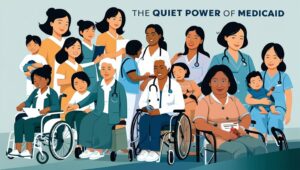
Children often go through stages where they display emotional or behavioral problems. These issues often resolve on their own with age and support and love from parents. If these problems don’t resolve, therapy can be extremely beneficial. Even kids who don’t have any issues can benefit from different types of therapy designed to help children grow into successful and healthy adults.
Cognitive Behavioral Therapy and Cognitive Behavioral Play Therapy
During the years your child spends as a child or a teenager, they may develop some less-than-desirable behaviors. These behaviors may range from throwing tantrums to physical violence to substance abuse. Cognitive-behavioral therapy (CBT) focuses on helping children change and develop different thought patterns. The idea behind the therapy is that when their thought patterns change, the child’s negative behaviors will change as well. This type of therapy can help children without behavioral problems as well. Children with anxiety or who are very emotional may also benefit by helping them recognize how their thoughts affect their emotions. Cognitive behavioral play therapy (CBPT) is similar to CBT in that it helps children develop thought patterns but is aimed toward younger children and uses play as a form of therapy.
Mental Therapy for Growing Athletes
If your child lives, sleeps and breathes sports, he or she probably has spent years training their bodies to perform. Parents often spend thousands of dollars and hundreds of hours on the field helping their child become their best at their chosen sport. Sports often involve using sports trainers to help your child strengthen their muscles, tutors to help your child succeed at school during sports training and a sports coach to help your child learn the very best strategies for the sport. One aspect that many parents don’t focus on as much is training their child’s mind for the mental aspects of the game.
A strong body can’t help your child succeed in their sport if they are struggling mentally. Performance anxiety, fear of injury and/or anger problems are some things that many athletes must deal with as a part of playing sports. Performance psychology has been used by professional athletes for years to help them stay focused and give their sport their best. These therapists have become more popular recently among children and teenagers. Performance therapists can help your child stay focused and driven to help them reach their athletic goals.
Speech Therapy
Many people who think of speech therapists think of a child getting help with a lisp or an articulation issue. Though a speech therapist can help with these things, they can do so much more. Therapists who specialize in speech can help children overcome a variety of speech issues as well as any problems they have with reading, spelling, or writing. Speech-language pathologists are trained to diagnose and help treat a variety of communication problems in children. These problems may include:
- Fluency
- Articulation
- Oral eating, feeding, chewing and swallowing
- Voice or resonance
- Pragmatic language
- Receptive language
- Expressive language
When thinking of speech therapists, many envision a child receiving assistance for a lisp or articulation issue. While addressing these concerns is part of their expertise, speech therapists go beyond helping children overcome various speech issues and challenges in reading, spelling, and writing. Speech-language pathologists are adept at diagnosing and treating a range of communication problems in children. Organizations like CASRF are committed to supporting and assisting California’s children by offering comprehensive speech-language, literacy, and education programs, fostering a lifetime of improved communication and confidence.
Family-Focused Treatment
There are many different aspects to a child’s mental health; this includes identifying and treating mental health disorders. Mental health disorders are extremely common in children. An estimated 17.1 million kids in the United States have some form of a disorder. Therapy and medication are often used to treat these disorders, but research has shown that these alone may not be enough. If your child has been diagnosed with a mental health disorder, it’s important that the entire family supports him or her.
Family-focused treatments can teach the entire family to help the child by looking for triggers, helping a child navigate their anger or developing rules and responsibilities that benefit everyone. Some studies have shown that family-focused interventions and treatment are extremely helpful in children with attention-deficit with hyperactivity disorder (ADHD), depression, anxiety and bipolar disorder. When the entire family comes together, children have a greater chance of navigating their issues.
Conclusion
As parents, it’s your responsibility to help your child grow and develop into a successful adult. Therapy can be one tool to help your child recognize their best aspects, stop negative behaviors and train them to take on any difficulties that come their way.


